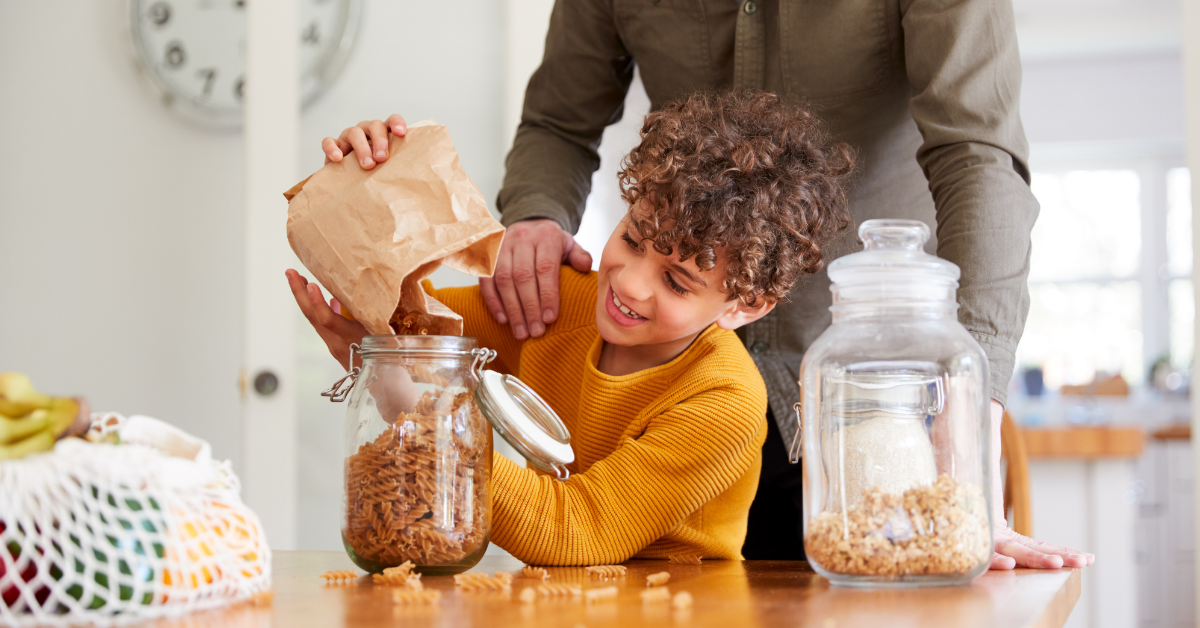
Zero-Waste Cleaning and Laundry Practices: Sustainable Solutions for a Cleaner Home

*Collaborative Post
Today, environmental concerns are at the top of global discussions. Even when we know this, we cannot stop producing waste daily. That’s when the idea of zero-waste living was introduced.
Living a zero-waste is more than a movement. It is a lifestyle. This involves minimizing waste generation and adopting sustainable practices in daily life.
A part of our daily life where we produce a lot of waste is in house cleaning and laundry routines. We want to lessen the waste, so we have here practical solutions that you can follow to promote a cleaner and healthier environment.
Zero-Waste Cleaning Solutions
Several traditional cleaning products have ingredients that pose a risk to our health and the environment. In zero-waste cleaning, they promote DIY home cleaning solutions, using natural ingredients such as essential oils, vinegar, and baking soda.
Some overlook DIY home cleaning and laundry solutions because they are unaware of the cleaning power of these natural ingredients. Little did they know, natural ingredients not only clean your home or laundry effectively, but also reduce your exposure to harmful chemicals.
Besides these eco-friendly cleaning solutions, it is essential to use sustainable cleaning tools to ensure your house cleaning routine is zero-waste. Check for cleaning cloths, brushes, and mops that are reusable and made from natural fibers or recycled materials. You can reuse these tools several times, eliminating the need to use disposable wipes and minimize waste.
It is also better to buy cleaning solutions in bulk. When you buy in larger quantities, it reduces the amount of packaging materials that are used on each product. You can check your neighborhood stores; some promote a zero-waste concept, offering refills. You can bring containers and refill them with cleaning products. This eliminates the need for single-use plastic bottles.
Waste Reduction in Laundry
One of the culprits in the laundry is using traditional laundry detergents with harmful chemicals that are detrimental to our health and the environment. Several manufacturers have joined the zero-waste movement and offer biodegradable and natural alternatives. An eco-friendly laundry detergent like these will break down easily in water and minimize their impact on aquatic ecosystems.
Using sustainable laundry and cleaning products is important in following zero-waste practices.
Another laundry mistake that we usually do is washing clothes in hot water. It is best to wash clothes in cold water to reduce energy consumption significantly. Besides reducing energy consumption, being cautious of water use is also essential. Use the appropriate water level for each load and avoid overfilling the machine.
Moreover, only wash a full load of laundry whenever possible. This optimizes the energy efficiency of your washing machine by maximizing its capacity.
Learn How to Repurpose and Upcycle
Repurposing common household items instead of discarding them is an excellent way to reduce waste. You are giving a second purpose for these items and minimizing the need to buy new products that may contribute to landfill diversion. For example, glass jars can be used as storage containers and old t-shirts can be transformed into cleaning rags.
Some also repurpose worn-out clothes or towels into cleaning rags or other useful items. Upcycling fabrics extend their lifecycle and avoids the need for disposable cleaning wipes. This not only reduces waste, but also saves money in the long run.
Practice Recycling and Composting Waste
Identifying compostable materials in your cleaning and laundry routines is essential for effective waste management. Set up a composting system in your backyard, or explore community composting options to divert organic waste from landfills. Items like fruit peels, tea bags, and coffee grounds can be composted instead of ending in the trash.
Properly sorting recyclable and non-recyclable packaging materials is crucial for effective recycling. By minimizing waste sent to landfills, you contribute to conserving natural resources and reducing environmental pollution. Educate yourself about local recycling guidelines and ensure that plastic bottles, cardboard boxes, and glass jars are correctly separated for recycling.
Final Takeaway
Adopting zero-waste cleaning and laundry practices is a step towards a more sustainable lifestyle. These solutions may be simple, but diligently following them helps our community further reduce their environmental impact. Let’s take a step together to create a cleaner home and healthier planet that we can enjoy with future generations.
*This is a collaborative post. For further information please refer to my disclosure page.




